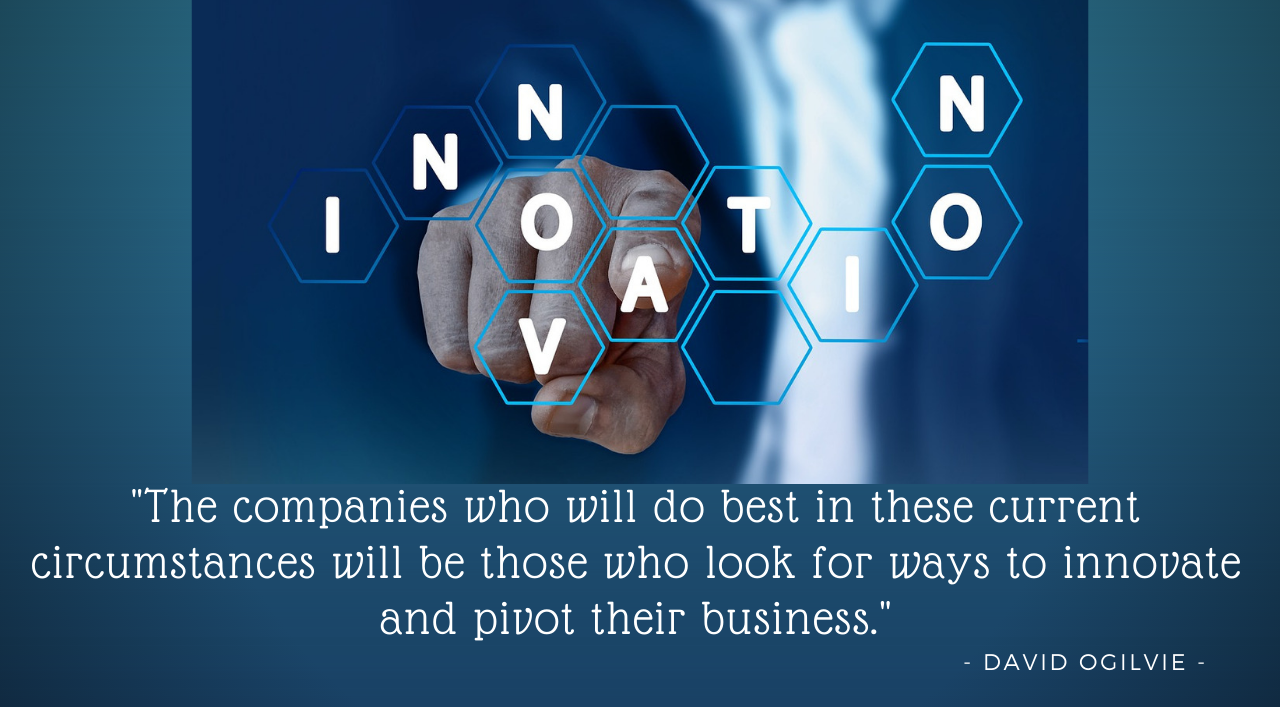
Pivoting a Business
The current COVID-19 situation has caught many businesses unawares and while the end toll remains unknown, it is expected this could be one of the most dramatic economic impacts we have seen for a very long time. For some younger amongst us it will be the most dramatic they have seen in their lifetime. Some reactions we have seen from the public at large, executives, and businesses to date are:
- Closing up shop altogether
- Putting their head in the sand and hoping it will go away, quickly
- Retreating to what they know
- Cutting costs dramatically and immediately
- Some have grasped the nettle and made changes to their business model and innovated
Here is what I have been talking to my clients about.
There will be winners and losers out of this situation. We need to look at how to make your business a winner. In most cases this will involve doing something you have not done before, because what you have always done in this environment won’t work for you at the moment. Things have changed. We need to look for and find the opportunity in this for you, we need to find the pivot in your business. This pivot will be different for every business.
Regular readers will know I have been writing for some time about the importance of having sound inventory and supply chain management practices in place. In fact in 2005 I completed a supply chain review of critical health supply chains for the Federal Government where recommendations in that report included many of the philosophies I have espoused here in my newsletter. It would seem the successive governments since then had shelved the report and never reviewed it, because within those recommendations where strategies to avoid and overcome many of the supply chain issues the health system is currently experiencing. Many businesses have now found themselves in similar situations.
While I am no health expert and I do not know how much longer this will take to get under control, I do know there are a few things you can control and when you control them, this will help get the most from this situation.
This time provides you with a great opportunity to ask some fundamental questions about your business you would not normally have time for. If you do this, you will learn things about your business you wouldn’t have at any other time. It is a great time to review strategy and:
- Ask who are our customers really and which of them are our ideal customer – because not every customer is profitable.
- Re-examine what it is you do for them.
- Re-evaluate what your customers really want.
- Examine where you really make your money, identify what are you doing because you have always done it and decide if it is really profitable or not.
- Identify who are the really good people I employ that I cannot do without. Who should I have let go sometime ago but didn’t want to bring myself to do it. If you let the good people go at this time, you may very well have great difficulty replacing them when you come out of this. The federal government’s recently announced schemes are aimed at helping businesses keep good people.
- If I am/or was thinking about replacing my ERP system, what steps can I take to best prepare for when the time is right. Some ideas that will be useful are:
- Data Cleansing. This is always a huge task. There is nothing better than cleaning data at the source as it helps the migration process significantly. So look at your naming conventions for all data but specifically; customers, suppliers, inventory items and bills of material. Take this opportunity when it is quieter than you would like to get this housekeeping done.
- Data Accuracy. I once had a client whose production manager swore to me their bills of material were 95% accurate. Fortunately the CEO was smart enough to question this and engaged the services of an engineer whose job it was to take one of each product off the production line and disassemble it and reconcile those parts against the bills of material. Guess what – their accuracy was no better than 54%. This is a fantastic task to undertake while you have time and in preparation for any ERP implementation project if you are a manufacturer. You will get significant benefits from doing this even if you don’t go ahead with an ERP and it helps keep your people employed putting their minds at ease about their job.
The companies that will do best in these current circumstances will be those who genuinely look for ways to innovate and pivot their business. There are plenty of examples such as HSV (Holden Special Vehicles). Previously known to rev-heads as the company that worked on creating street legal but race like Holden Commodores. Their business was decimated when GM retired the Holden brand. They are now manufacturing parts for ventilators, something there is a chronic need for at the moment. There are ways to pivot your business, we just need to explore what they might be.
Some of the truly independent advice I can provide includes:
- Honest point of view;
- Help you develop your short-term strategy and help pivot your business to cope with this situation;
- Help you develop your long-term strategy;
- Provide a proven ERP selection and implementation methodology;
- Knowledge of what questions to ask and an ability to put the vendor under pressure to prove their statements of capability;
- Providing support to executives so their risk is minimised;
- Be a sounding board for ideas.
Give me a call for a confidential discussion on the best way to achieve this.
Until next month …
Sincerely,
David